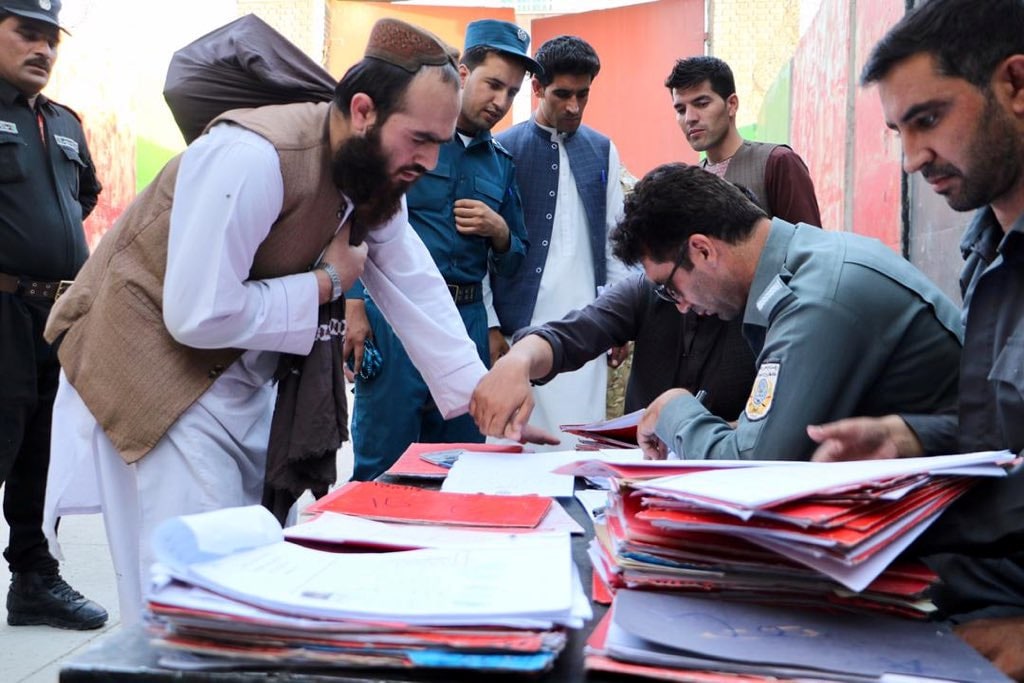Afghans and their international partners have paid the costs. Now we’re taking a risk for peace.

Last week, we made the decision to take another risk for peace. After releasing 4,600 Taliban prisoners to facilitate certain conditions of the U.S.-Taliban deal of Feb. 29, we were confronted with the difficult issue of releasing 400 remaining prisoners convicted of serious crimes, including the killing of Afghans and citizens of the international community. We were assured that their release would fulfill the Taliban’s final demand before facing us at the negotiating table.
This was not a risk I could take alone, constitutionally or morally, without consulting the Afghan people. Earlier this week, 3,400 women and men from all provinces of Afghanistan and all strata of society came together, in the presence of the country’s political leadership, at a consultative assembly known as a Loya Jirga, to deliberate and debate. They decided to approve the release of the prisoners, and the next day I signed the order. It was the Afghan people’s latest, and boldest, risk for peace.
In 2018, we knew peace would be costly, but we did not know what those costs would be. We do know now, and we have paid heavily. The cost of releasing these 5,000 prisoners meant, among other things, denying justice and healing for the families of those they murdered. Since March, we have also paid for peace with intensified Taliban violence. Over the past five months, while Afghan security forces maintained a defensive posture, the Taliban and associated terrorist groups (which the Taliban has yet to publicly renounce) killed or wounded 12,279 Afghan security forces and civilians, according to our own figures.
We have paid the costs. There must now be a dividend of peace for the Afghan people.
Now, despite the violence, Afghans are coming to the negotiating table with renewed momentum for peace, a stronger relationship between the government and citizens, a better sense of coordination with our international partners, and unity among our political leaders.
Assurances will no longer be enough to propel the peace process forward. It is now time for the Taliban to sit across from the representatives of the Islamic Republic of Afghanistan in earnest, in order to reach a political solution and to declare a comprehensive cease-fire. We acknowledge the Taliban as part of our reality, and we are solidly committed to reaching a political deal that accommodates this reality. The Taliban must, in turn, acknowledge the changed reality of today’s Afghanistan. The Taliban must work with us to preserve and expand the gains the Afghan people have made over the past 19 years, including for the benefit of the thousands of Taliban fighters, and refugees and returnees, who will need to be immediately reintegrated into society.
The international community will play an important role as facilitators and mediators of the talks, ensuring that momentum, and a level playing field, are maintained. Our international partners must also continue to stand firm for the values and principles in which we have all invested for 20 years.
The Afghan National Defense and Security Forces have not only been sacrificing to preserve and protect our country, but also in pursuit of counterterrorism objectives that we share with the United States and the international community. Our forces took over full responsibility for combat operations from foreign troops in January 2015, and since then the Afghan government has taken measures to substantially reduce the burden on U.S. taxpayers. We thank the United States and our international partners for their continued support of our security forces, which will be critical as we move forward with the peace process.
We share a vision with the United States and our international partners for the outcome of our talks with the Taliban: a sovereign, unified, democratic Afghanistan at peace with itself, the region and world, capable of preserving and expanding the gains of the past two decades.
We must all come together to achieve this vision. It will require a different kind of strength than war. It will require us to practice patience, make compromises and pay further costs toward the price of peace. But to fail in our pursuit of a sustainable peace is not an option; it would demand a far deadlier price — one that the Afghan people, and our international partners, cannot afford to pay.
Read more:






